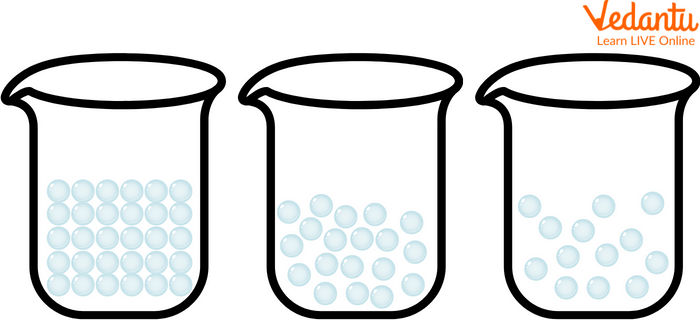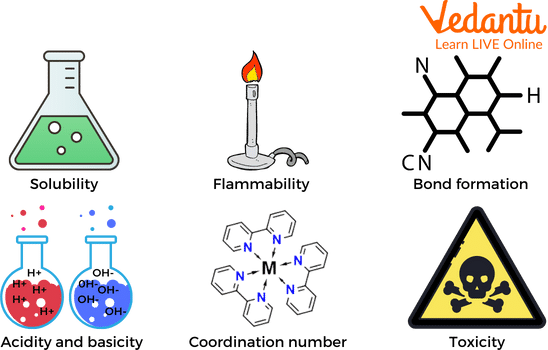




Why Learning Chemistry is Fun and Easy for Kids
Science is the basic study of different kinds of living beings. Some of the major types of science subjects are Physics, Chemistry, and Biology. Each of these subjects has a major specialisation in different areas and is considered a full mode of study.
One of these subjects is Chemistry which is an integral part of Science. Hence, chemistry is considered a branch of science that mainly deals with parts of a composition of matter, objects, atoms, and elements.
What is Chemistry for Kids?
Chemistry contains different parts of science to deal with and hence is considered the ‘central science’ which comes into play while dealing with other forms of science such as biology as well. When thinking about what type of science is chemistry, then one should understand that it is a part of science and has dealings with different forms of matter present in our nature.
What is Matter in Chemistry?
Since chemistry deals with different kinds of matter in nature, understanding what is matter is a must! In easy words, any form of thing, even the smallest particles constituting an object is considered matter. The air that is around us also consists of small particles that are considered matter and hence make chemistry play an important role.

Different States of Matter
The matter is a very large term, it is considered a building block of several objects. Some of the components of matter are listed below and have significant properties.
Atoms: The integral part of matter which is the tiny building block of chemistry. Even the smallest of objects contain billions of atoms throughout and are packed together to form them.
Elements: When several atoms of one particular kind come together and form one single object then it is considered an element.
Compounds: When several atoms of different kinds come together to form one single object then it is considered a compound.
Mixture: We can consider a mixture as a material that is formed when different kinds of compounds come together and are not able to combine chemically. This property of not combining different compounds majorly makes up a mixture.
What Kind of Subjects is Present in Chemistry?
There are several chemistry subjects that one can choose to understand in different manners. These subjects contain detailed studies about different kinds of topics and have specialisation in those particular topics.
Some of these subjects mention matter, mixture, compounds, and other different sub-topics to understand. The subject of matter consists of several subtopics like atoms, molecules, different states of a medium, melting & boiling points, chemical bonding, reactions, radioactivity, and radiation.

Subjects Present Under Chemistry
Another subject of chemistry which is mixture comprises studies like detailed properties of mixtures, solutions, acids, bases & salts, crystals, metals, and soaps.
Some of the other miscellaneous topics of chemistry contain the understanding of lab equipment, detailed organic chemistry which contains sub-topics like alcohol, and knowledge of famous chemists and people related to discoveries in chemistry.
Why is Chemistry Important?
While studying chemistry, it is necessary to learn why is chemistry important. One should understand that chemistry is present all around us, even our smallest action has a chemical reaction and hence extensively involves chemistry throughout us.
From doctors to farmers, everyone uses chemistry in their work and daily life. Thus, we need to understand that chemistry can be considered one of the most fundamental parts of our lives, making it important.
Fun Chemistry Facts for Kids
Chemistry is one of the most interactive subjects present around us and carries some of the most mind-blowing reactions present in them. Hence, here are some of the amazing fun chemistry facts for kids.
The only elements of chemistry which have the potential to stay in the liquid state at room temperature are mercury and bromine. Rest, every element has a gaseous or solid state at room temperature.
Water is one of the elements which expands while freezing and according to scientists, water takes up 9% more volume when frozen in comparison to its liquid state.
Radioactive elements can glow in the dark.
Amazingly, the only letter which is not present throughout the periodic table is the letter J.
Oxygen is said to be colourless but that is only applicable for the gaseous form. The solid and the liquid form of oxygen appear to be blue.
Summary
Chemistry is one of the most incredible branches of science and has some of the most amazing reactions and studies related to it. Chemistry is a science subject that is considered one of the most interactive subjects of all and makes it important for people to understand it.
FAQs on Chemistry for Kids: Explore, Experiment & Learn Live
1. Which is the most significant force in chemistry?
There are four forces in nature that are considered the most fundamental throughout different types of sciences. These forces are gravity, electromagnetic force, the weak and strong nuclear forces. The most significant force in chemistry is considered the electromagnetic force. The gravitational force is much weaker to pay an impact on the chemical bonds. There are different areas in chemistry which have involvement of forces through them such as bond formation. Different bonds have different impacts on the force applied to them.
2. Why in Chemistry is the mass conserved?
According to science, mass and energy can transform into one another. The conservation law of the universe states the conservation of mass-energy. But this works according to the law of conservation of energy and hence one can conclude that mass is not conserved in chemistry rather it transforms from one form to another form. Not only in chemistry but this law is rather universally applied to different actions and reactions. The law of conservation of energy is rather a rule which is supposed to be followed everywhere naturally.





















